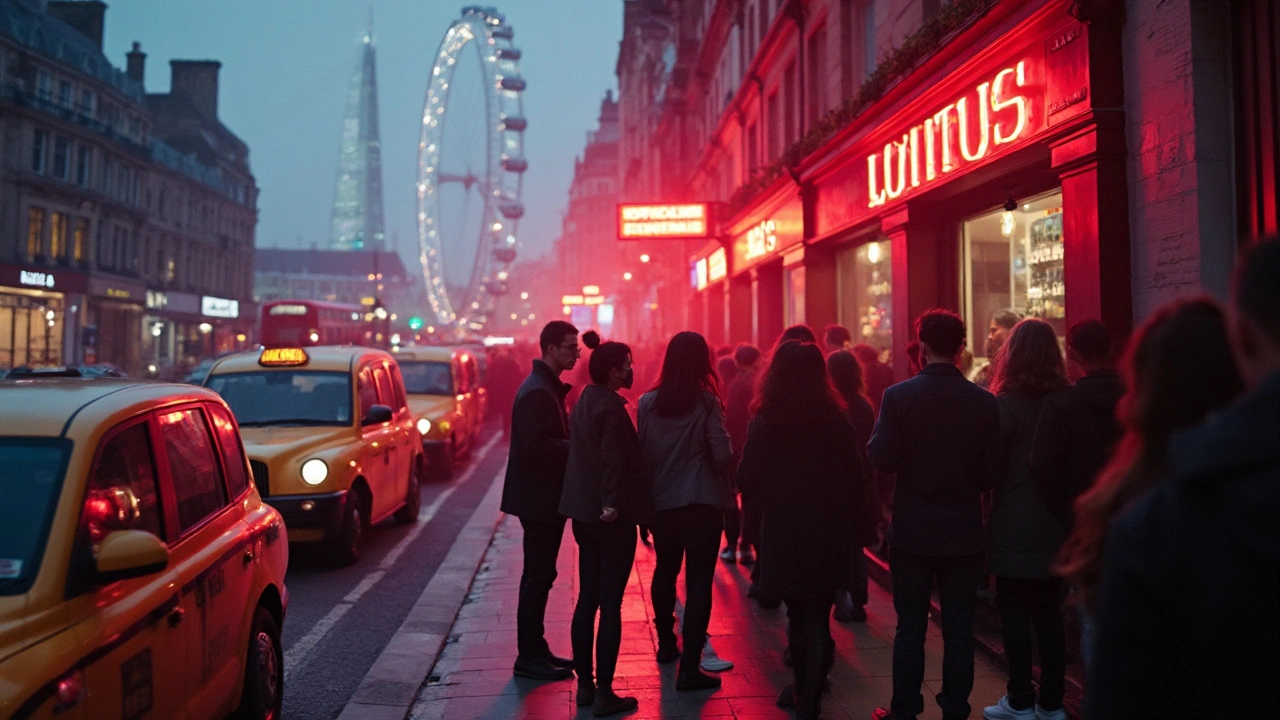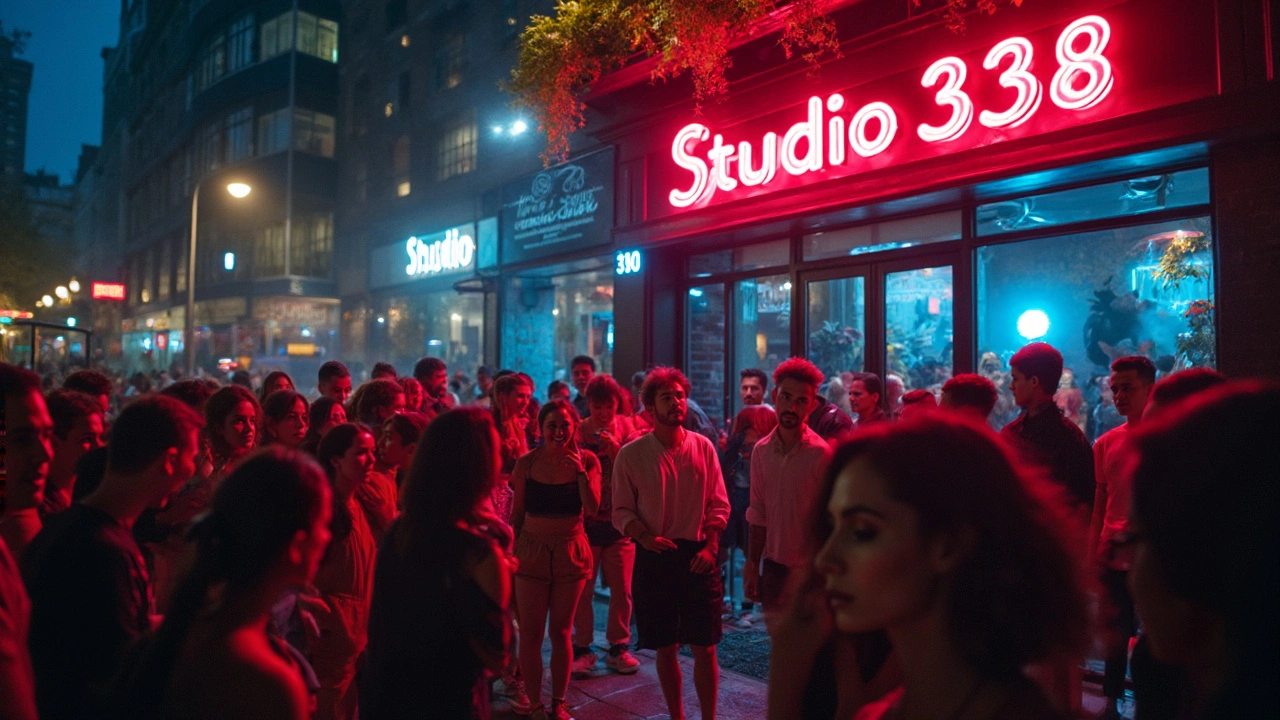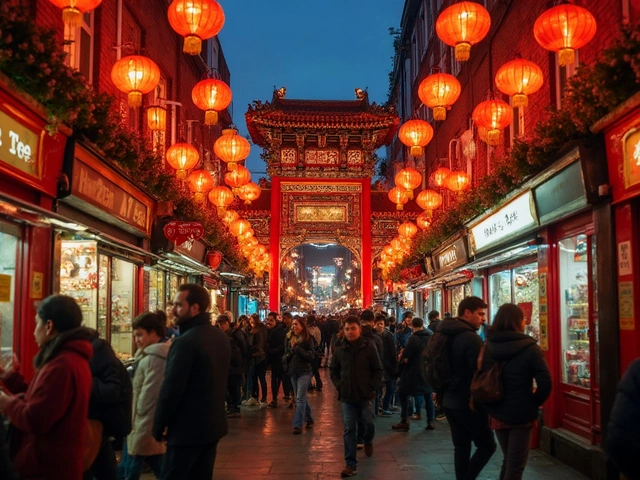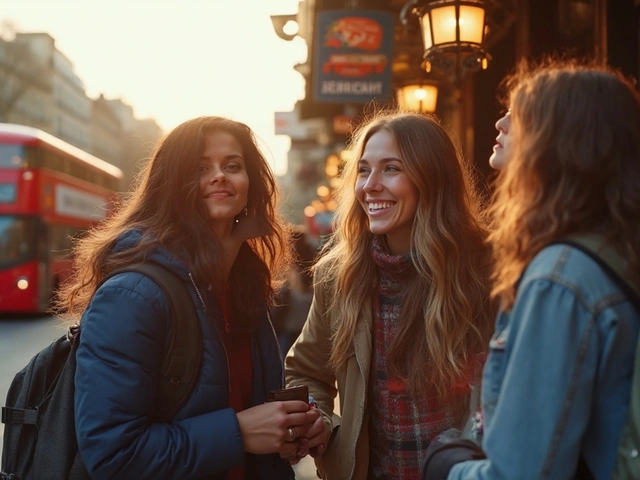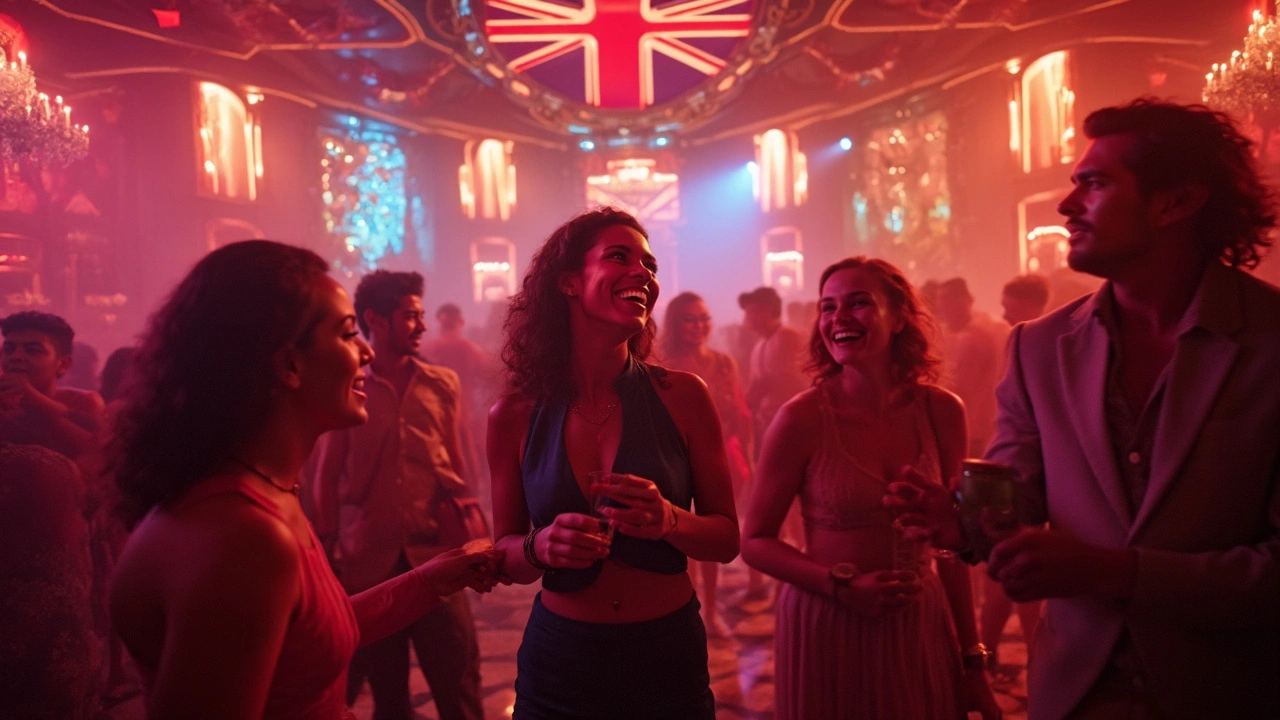
Picture this: you’re searching ‘night club near me’ and scrolling through names you’ve never heard of. Some places tout vintage vibes, others promise all-night EDM fests, and you’re left wondering how all these options even came to be. Night clubs are everywhere, but their wild journey from secret jazz dens to today’s mega-venues is not what most folks expect.
You might think night clubs are all about loud music and neon lights, but there’s a real story to why they’ve become the heart of nightlife in just about every city. These spots have seen everything—music revolutions, social change, even the first stages for artists who later became legends. So, picking the right club isn’t just about finding the closest one; it’s about finding your scene, your vibe, and a little piece of history tucked behind a velvet rope.
- How Night Clubs Grew Into Pop Culture
- Different Night Club Styles in Your Area
- Finding the Best Night Club Near Me
- Staying Safe and Making the Most of Your Night Out
How Night Clubs Grew Into Pop Culture
Way before you could just type “night club near me” and scroll through endless choices, nightclubs were, honestly, kind of underground. Back in the 1920s, Prohibition in the U.S. meant alcohol was banned—but that didn’t stop people from sneaking into secretive jazz bars called speakeasies. The music and energy at these spots kicked off the whole idea of nightlife as more than just an end-of-day drink.
As laws changed and the world moved on from Prohibition, clubs kept evolving. In the ’50s and ’60s, small, smoky jazz and soul clubs took over in cities like New York, Chicago, and London. Fast forward to the disco explosion of the ’70s: suddenly, everyone wanted to dance under a glittering ball. Clubs like Studio 54 weren’t just places to party—they became symbols of fashion, freedom, and sometimes even scandal.
The dance floor kept changing in the ’80s and ’90s with the rise of house and techno music from Chicago and Detroit. Raves, once mostly illegal and tucked away in old warehouses, went mainstream. By the 2000s, clubs had grown huge—think Las Vegas megaclubs with celebrity DJs and massive LED shows. The numbers prove it: by 2019, the global nightclub industry was reportedly worth over $25 billion, according to Statista.
| Decade | Key Trend | Popular Club Type |
|---|---|---|
| 1920s | Speakeasies, jazz | Secret bars |
| 1970s | Disco craze | Dance clubs |
| 1980s-90s | Electronic music, raves | Warehouse parties |
| 2000s-now | Superclubs, EDM | Mega-venues |
Today, the nightclub scene is woven into pop culture. Think about how many music videos or movies feature club scenes—sometimes, that’s the whole point of the story. When you search for a “night club near me,” you’re not just looking for a place to dance. You’re tapping into a living trend that grew from back-alley jazz to the mainstream spotlight, shaping the sounds and styles you see everywhere.
Different Night Club Styles in Your Area
When you search for a night club near me, you’ll notice there’s a real mix of styles—no two places are exactly alike, even within the same city. Different generations and music waves have inspired all kinds of spots. Here’s a breakdown to help you spot what’s out there and what fits your style best.
- Classic Dance Clubs: These are your big venues, often found downtown or in busy districts. They have flashy lights, big-name DJs, and crowds ready to dance until sunrise. Think of Miami’s LIV or LA’s Avalon.
- Jazz and Blues Clubs: If you want something a bit more laid-back, these clubs are all about the music. Many cities still have old-school jazz basements or blues bars where you can actually hear yourself talk between sets.
- Hip-Hop and R&B Spots: These clubs are often packed and high-energy, with themed nights and local talents. They’ve been booming since the late '90s and are now staples in urban areas.
- Live Music Venues: Bands instead of DJs run the show here. If seeing the next indie star up close is your thing, check these out. Cities like Austin and Nashville are loaded with these kinds of clubs.
- LGBTQ+ Clubs: These are inclusive spaces featuring drag shows, themed nights, and a huge focus on community. They often set trends that mainstream clubs follow years later.
- Lounge Bars: With chill vibes and comfy seating, these are perfect if you’re more about hanging out than breaking a sweat on the dance floor.
- After-Hours Clubs: For the night owls, these spots open when everybody else is closing. You’ll usually find industry folks and hardcore partiers here.
Want some hard numbers? In a 2024 survey of nightlife fans in six major U.S. cities, the most popular types break down like this:
| Club Style | Preference (%) |
|---|---|
| Dance/Electronic | 36 |
| Live Music | 25 |
| Hip-Hop/R&B | 18 |
| Jazz/Blues | 11 |
| LGBTQ+ | 7 |
| Lounge | 3 |
Each neighborhood tends to lean toward its own flavor. Big student areas? More budget-friendly and alternative clubs. Downtown? Swankier places with high cover charges. If you’re new to an area, ask around or check out local social feeds to see what’s trending. The scene’s always changing, so don’t be afraid to try something outside your comfort zone—you might just find your new favorite hangout.
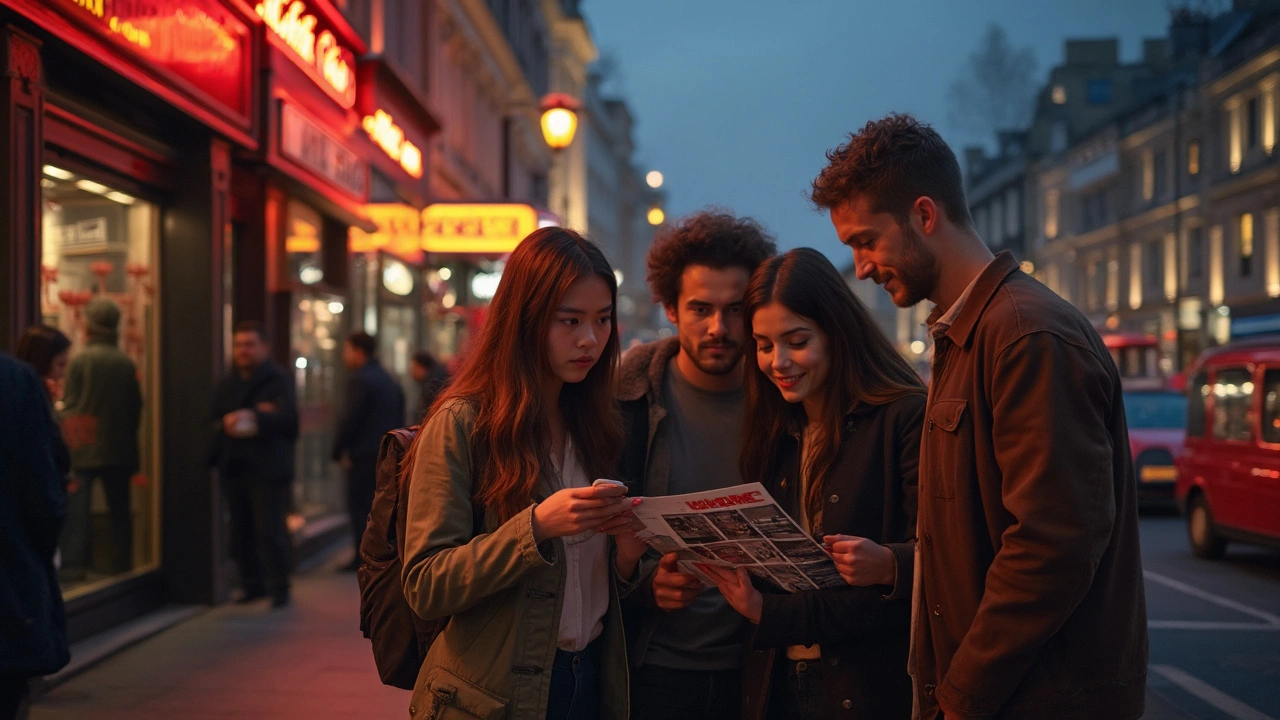
Finding the Best Night Club Near Me
If you’re hunting for the perfect spot to dance or chill with friends, the biggest trick is to look beyond just the flashy ads. Start with your own vibe: Are you into high-energy crowds and top 40 hits, or something more relaxed with live blues? Picking the right spot gets way easier if you know what you’re after from the jump.
Don’t just go by online ratings. About 74% of people who leave nightclub reviews are focused on staff attitude and drink prices, not the crowd or music quality. To really get a sense, follow local social media pages or event listings. A lot of clubs post setlists, guest DJs, or themed events that give you a preview of the scene. If you’re new in town, look for club types in neighborhoods known for nightlife — think East Village in New York, Shoreditch in London, or Shibuya in Tokyo. Those areas often offer different themes right in the same block.
Night club near me can mean anything from tiny dive bars to high-end rooftop lounges. Getting specific helps. Use Google Maps, look for up-to-date photos, and check hours—they change a lot, especially after big weekends or holidays. Some clubs even offer virtual tours on their websites, which can save you from unwanted surprises. A quick check on cover charges and dress codes will save you headaches at the door, too.
If you want hard facts, here’s a table with some common things people compare when picking where to go out:
| Feature | What to Check |
|---|---|
| Music | Is it live, DJ, or themed? What’s the genre? |
| Crowd | More students, tourists, or locals? |
| Hours | Some spots shut at midnight, others run till 5am. |
| Price | Typical cover charges, drink deals, and specials. |
| Dress Code | Casual or upscale? Will sneakers get you turned away? |
| Accessibility | Is it near public transport? Any parking? |
Pro tip: Scan event apps like Eventbrite or Resident Advisor for last-minute gigs or openings. And always check the weather if there’s a rooftop or patio involved — nobody likes an unexpected rain shower while dressed to the nines.
If you follow these steps, finding your next favorite club isn’t about luck. It’s about a bit of planning and knowing what kind of night you want.
Staying Safe and Making the Most of Your Night Out
Alright, let’s get real about going out. Whether you’re headed to a packed dance floor or just chilling at a laid-back lounge, safety should always come first. Most people don’t think about it when searching for a night club near me, but a little planning goes a long way.
First, always plan how you’ll get home before you even leave. Call a rideshare, pick a sober driver, or check when the last train runs. A 2023 survey from the National Safety Council found that over 60% of clubgoers get stuck figuring out rides after midnight—don’t be that person stranded out front at 3 a.m.
It’s also a smart move to stick with friends. Make a group chat before you head out, check in if you split up, and never leave anyone behind. If you’re heading somewhere new or out of your neighborhood, check recent reviews for things like security staff or emergency exits. Most legit clubs put safety right at the top—if you see reviews complaining about sketchy bouncers or dark alleyways, skip that place and try another.
Watch your drinks too. It only takes a second for someone to spike a drink if you’re not paying attention. Grab your own drink from the bar, hold it by the top, and don’t accept open drinks from strangers. This tip sounds obvious, but plenty of people let their guard down once the music starts pumping.
If you have valuables—phone, cards, keys—keep them on you. Use pants or shorts with zip pockets, or grab a simple crossbody bag. And if you lose something, go to the club’s lost-and-found right away; many clubs keep stuff for only one night.
Trying to enjoy the night? Go in with a plan: pick a meeting spot inside in case you get split up, pace yourself with drinks, and eat something before heading out. Studies have shown people who eat beforehand are less likely to get overly tipsy or feel sick.
Here’s a quick checklist for a great and safe night out:
- Arrange your ride home before leaving.
- Stick with people you trust and have a way to check in.
- Keep an eye on your drink and never leave it unattended.
- Take only what you need and keep valuables close.
- Know the club’s emergency exits and ask staff if you’re unsure.
- If something feels off, tell the staff right away—they’re trained to help.
Following a few basic tips lets you focus on why you’re really there: to dance, laugh, meet new people, and maybe make some next-day memories worth telling. Have fun, but don’t leave your common sense at home.
Categories
Popular Articles
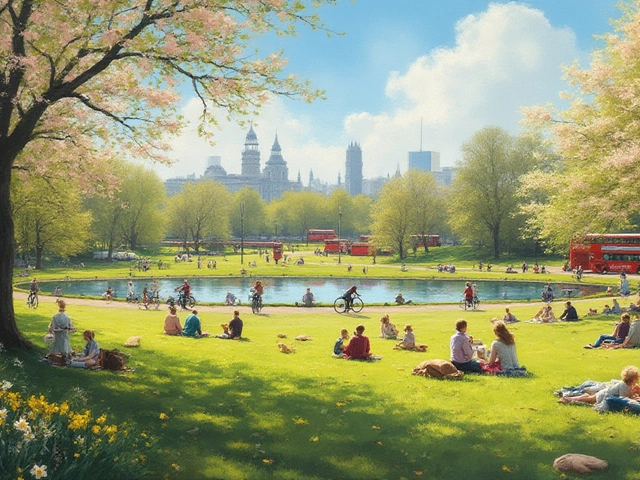
Jul 13 2025
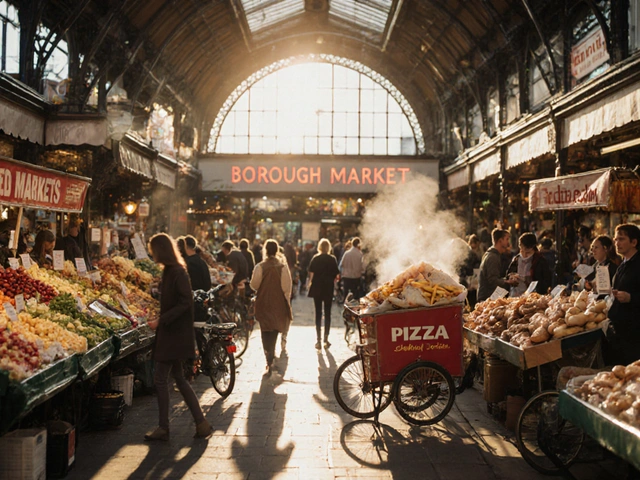
Oct 16 2025

